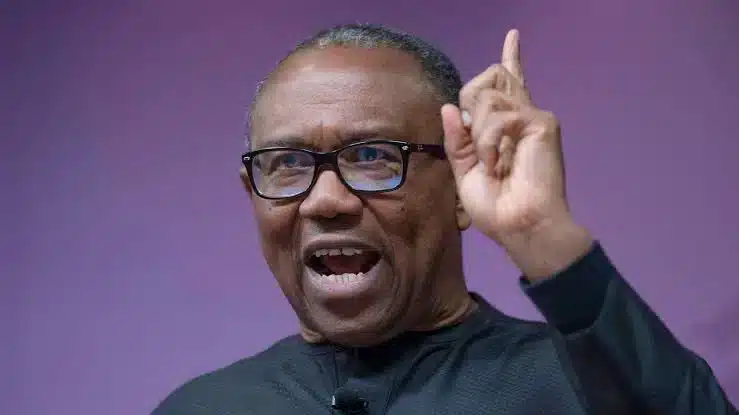Labour Party’s Presidential Candidate, Peter Obi, accused the Independent National Electoral Commission, INEC of impartiality.
Peter Obi claimed the electoral body had failed in its primary statutory duty as an impartial umpire in the political process.
During his final address to the Presidential Election Petitions Court on July 23, 2023, Obi, along with the Labour Party (LP), asserted that INEC's actions amounted to cloning electoral fraudsters and had resulted in a wastage of both time and national resources.
The crux of Peter Obi and LP's argument centred on INEC's handling of the 2023 General Election, in which the commission claimed to have used modern technology in compliance with the Electoral Act of 2022, the INEC Regulations and Guidelines, and the INEC Manual.
Specifically, INEC had committed to using the Bimodal Voter Accreditation System (BVAS) for voter accreditation at polling units and the real-time upload/transmission of election results to the INEC Result Viewing Portal (IReV).
However, Obi and LP contended that INEC had failed to deliver on this promise. Instead of the expected transparent and credible real-time transmission of results, the commission allegedly uploaded blurry, unreadable, and inaccessible documents/images purporting them to be election results from various polling units. This, according to Obi and LP, undermined the credibility and transparency of the election.
Peter Obi also pointed out that INEC's claim that the collation of election results remained a manual process contradicted the provisions of the Electoral Act, Regulations, and Manual, which specifically allowed for electronic transmission to the IReV as part of the collation system.
Furthermore, Obi disputed the authority of the Federal High Court's decision in Suit No: FHC/ABJ/CS/1454/2022, which INEC had heavily relied upon in its argument.
According to Obi, this decision had been superseded by a later binding decision of the Supreme Court in Appeal No: SC/CV/508/2023, OYETOLA v. INEC, delivered on May 9, 2023.
Additionally, Peter Obi criticized INEC for allegedly providing blurred, blank, and extraneous copies of the electoral forms (EC8A) to the petitioners instead of producing the actual hard copies used for manual collation, as claimed by the commission.
Obi and the LP warned that unless the Presidential Election Petitions Court compelled INEC to fulfil its electoral duties fairly, impartially, and independently, Nigeria's elections would continue to be tainted by fraud.
The court now faces the task of deliberating on the evidence presented by Obi and LP and determining the validity of their claims against INEC.




















